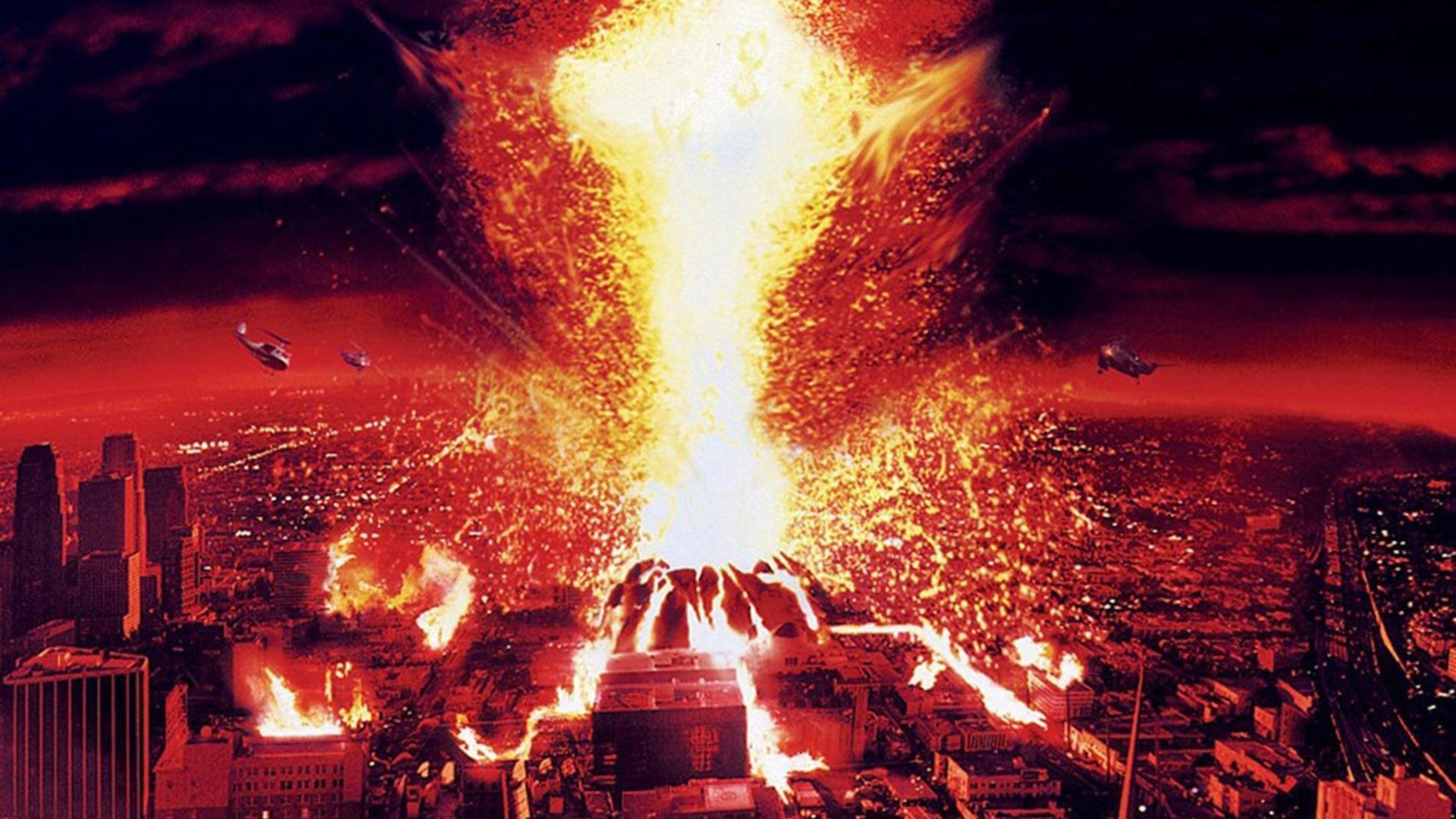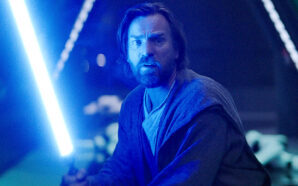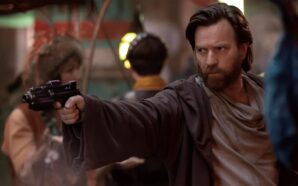There’s something comforting about watching a disaster movie from 25 years ago. Sure, people might be dying and a city’s being destroyed but it was the 90s, that glorious period deemed “the end of history,” where humanity had peaked, triumphed over all adversity, and all that remained was post-Cold War peace. Natural disasters were the only dangerous and, dare I say, exciting things happening and this was reflected onscreen with the latter years of the decade crammed with meteor movies and Volcano flicks, two of which battled it out at the box office in 1997: Dante’s Peak and Volcano. This was before 9/11 when disaster movies were fun, when the imagery of ash-covered faces and downtown rubble had yet to have a real, haunting counterpart. Revisiting Volcano was a welcome return to this earlier and simpler time, even if I spent more time scoffing at the naivety on show. A time where pagers beeped constantly, smoking at the workplace was rampant, people swapped business cards in an emergency, Kangol hats were still considered cool, and Tommy Lee Jones could defeat a volcano.
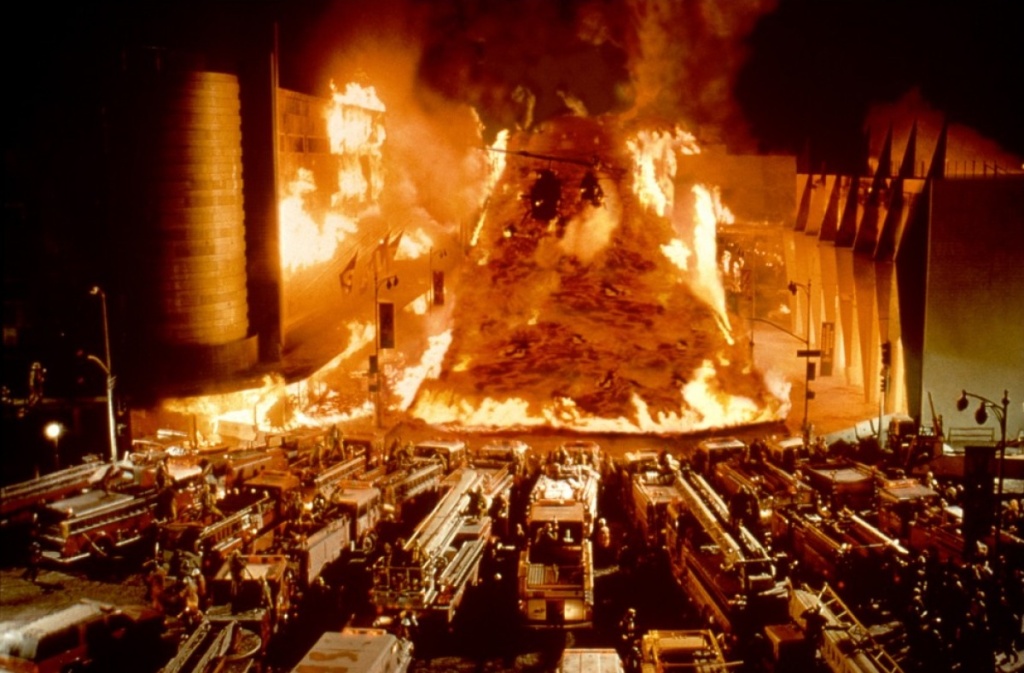
At least, I thought Volcano would represent the conflictless 90s. That how I remembered it in my hazy childhood recollections. I used to love the film at the peak of the volcano obsession of my youth but, revisiting it now, it’s not all saving dogs from lava. There’s a metaphor I never picked up on, which is quite surprising really because it’s as subtle as a supervolcano. In the city of Los Angeles, the film’s setting, racial tension is boiling over, ready to erupt. Hey, like a volcano! The film begins with audio from news reports over a montage of the city and as we hear of a 15-year-old African American being sent to an adult prison with an unjust sentence the camera pans underground and we see the threatening, bubbling heat. That’s right, this is the Die Hard with a Vengeance of volcano movies, although clearly not as good.
There’s something admirable about the film trying to say something on the matter, the racism and riot news stories that defined LA in the nineties, from Rodney King to OJ Simpson, and it makes the film much more interesting than its purely vapid contemporaries. Yet it’s all rather awkward and is merely an additional layer to a disaster film rather than entwined with the film’s DNA. Most of the movie is still white movie stars doing white movie star things, like hanging off burning ladders and running in slow motion. The theme instead surfaces in a subplot featuring a black man trying to get the emergency services to stop saving museums and instead focus on an underprivileged housing area who is arrested for his troubles. But, after spending some time together, the cops release him and they work together to save people and even salute each other at the end. It’s nice but as simple as can be. And then the film ends with a little kid looking at the ash-covered faces of all involved, their races hidden, and saying “Look at their faces. They all look the same.” All it takes to solve racism is a volcanic eruption in the middle of LA.
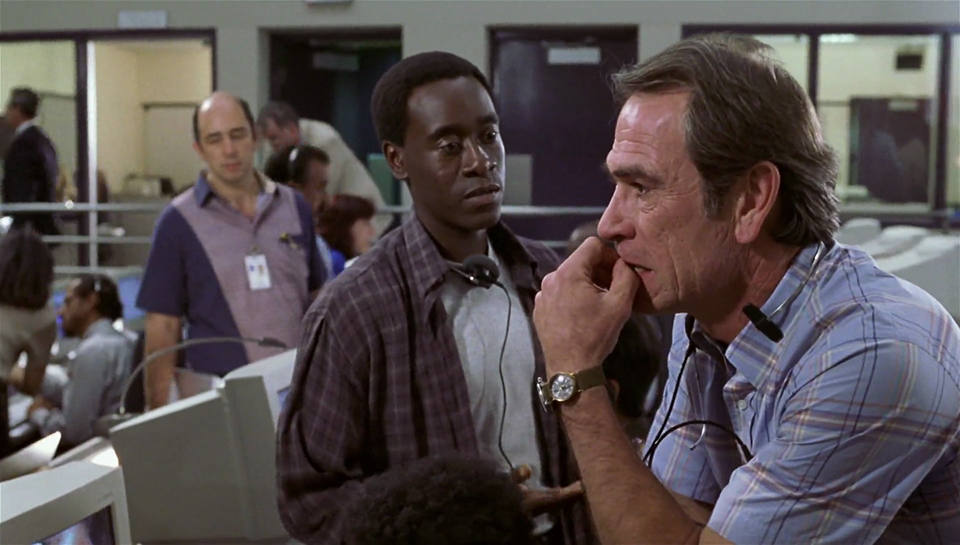
Its attempt at saying something profound may be lacklustre but the film, while not great, is a fun adventure. It’s a proper chunky 90s action film. It moves briskly and is competently put together by director Mick Jackson, whose odd career also gave us one of my favourite films, the very different Temple Grandin. Yet the true behind-the-scenes star is probably Alan Silvestri whose score is wonderful and builds so much tension. A volcano suddenly appearing in LA is monumentally dumb but the film commits to the idea and propels you along for the ride so fast you can’t stop to question it. It uses the ‘busy approach’ of creating tension with overlapping dialogue, quick cuts between stories, and constant background conversation, creating a sense of urgency and realism before the film suddenly stops and becomes silent just as something terrible is going to happen. It’s silly but very well-edited silliness.
It’s that high energy and fast pace that I think puts Volcano above its rival Dante’s Peak. Don’t get me wrong, I still enjoy that other film but it takes an awful long time for anything to happen while Volcano is intense from beginning to end. Looking at it as objectively as possible, Dante’s Peak is likely the better film, and infinitely more realistic to the point where it was the go-to movie for a school Geography class when the teacher couldn’t be bothered to work. But Dante’s Peak also makes me just think of the better movies it’s aping, like Jurassic Park, while Volcano is the best of its type and era. If anything, it’s like Independence Day, a film about the response to a disaster or event as much as the disaster or event itself, and I’d take Volcano over that film any day.
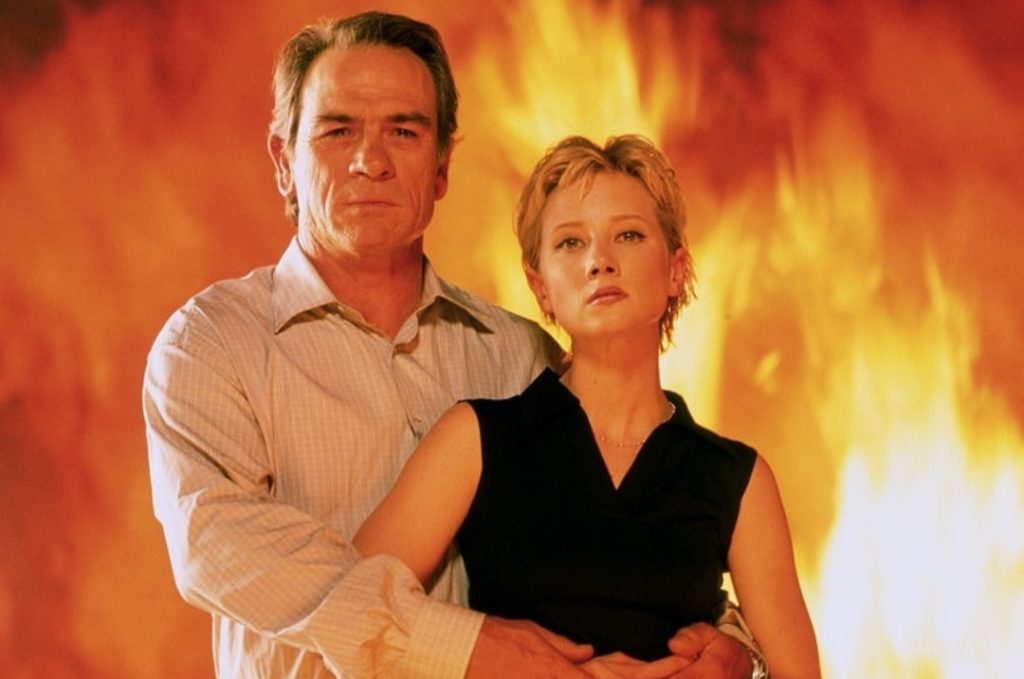
John Carroll Lynch. Dayton Callie. Susie Essman. Richard Schiff. Keith David. Don Cheadle. What a cast of supporting actors, each making the most out of their small roles, and Tommy Lee Jones taking centre stage at his craggy-faced shouty best. Seriously, the film is 90 minutes of him constantly shouting. Any other actor that would annoy me but not TLJ. Jones’s talents are vital to the film since his character, Roark, makes very little sense. He’s the chief of the emergency response and yet asks questions like “what is a geological event?” and “what is magma?” In terms of Jaws, he flip-flops between being Brody and the mayor, initially being the only one to think there’s an issue, he shuts down MacArthur park, and then calls in a seismologist, played by Anne Heche, only to then argue with her that nothing is actually wrong. But at least they bond over bible quotes in a very odd moment.
But come on, when you watch a volcano movie, let alone one called Volcano, all you want is some quality lava action. Some immolation, some melting. And the film delivers. Having still never experienced an earthquake in real life, I’ve always been fascinated by them, and the one that occurs early in the film is genuinely scary. But from that point on the film becomes only interested in red and orange. There’re no other geological events consistent with volcanoes, only the spectacular stuff, from red lightning (what?) and lava bombs to lava and yet more lava. It’s all about the lava. It seeps forward rather slowly for most of the film, an unstoppable wave moving through the city, setting it apart from the spewing of other movies. And a good lava sequence isn’t complete without a cool death and John Carroll Lynch’s, where he jumps into the lava and throws the person he’s carrying into safety while melting, is an all-time classic.
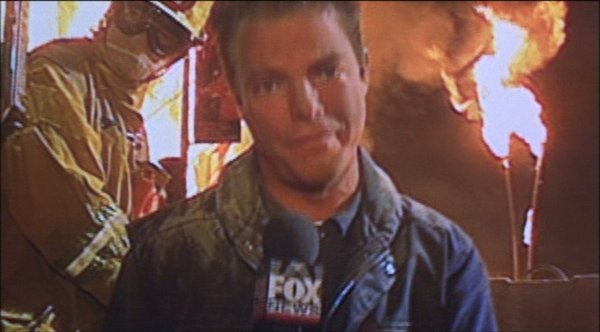
The news media play a huge role in Volcano, with many of the reporters played by real life news journalists who make up a giant paragraph of names in the credits. I guess they didn’t realise the film would actually be mocking them in the midst of all the volcano action. On the surface, the constant news media coverage adds a sense of realism but it’s also a condemnation of the style of reporting – an issue it treats with a bit more bite than the clumsy racial overtones. During the first big action sequence of the initial eruption, cars are crashing, lava bombs are flying, and everything that will catch fire is, but there’s one reporter sat in his car, narrating everything into his phone while everyone is in peril. Eventually Tommy Lee Jones yanks the phone from his hand and tells him (shouts in his face) to help out. The fluffy elements of broadcast news are also mocked because the film cuts straight from the poorer neighbourhood burning to a news story about a vet saving a pot-bellied pig, with the social commentary on who they truly care about being clear. And, of course, the reporters can offer exposition when needed like the laughable line “the volcano is shutting down.”
Tommy Lee Jones (there’s no point referring to him by his character’s name) saves the day. By blowing up a building with his friend inside, but saving his daughter at the final moment in slow motion, he somehow stops a volcano and the lava flows into the sea. Cue an unironic use of Randy Newman’s I Love LA as the credits roll. The film was a genuine favourite of mine as a kid and now it’s my favourite guilty pleasure as an adult. If anything, it’s gotten more interesting as I’ve gotten older and realise it’s place in history with the social commentary it is attempting, either successfully with the media reaction or very clumsily with the racism. Yet there’s some genuinely good filmmaking that always pushes the film out of the ruts of its own making. Volcano is a stupid movie but a damn fun one.
Who wins the battle of the disaster movies: Dante’s Peak or Volcano? Let me know in the comments and be sure to geek out with me about TV, movies and video-games on Twitter @kylebrrtt.




